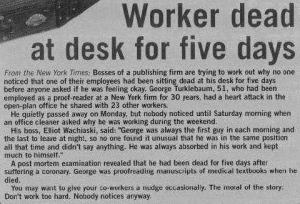 When attorneys are getting fewer clients and their income is waning, it’s only logical to look at cutting expenses. After all, every dollar you don’t spend on overhead is a dollar more in net income.
When attorneys are getting fewer clients and their income is waning, it’s only logical to look at cutting expenses. After all, every dollar you don’t spend on overhead is a dollar more in net income.
There are a lot of ways to reduce overhead. Go through your ledger (or bank and credit card statements) and I’m sure you’ll find many small items that can be reduced or eliminated. or a month expenses may not jump out at you, but when you add them up, you may find yourself spending thousands of dollars you don’t have to.
Also look at big items. Can you move to a smaller office? Can you work from home and use another attorney’s office to see clients? Can you get by with a less expensive car?
There’s one category of expense that you should not cut. In fact, when times are tough, it’s the one expense you should look at increasing. When times are tough you should spend more on marketing.
Attorney Philip Franckel explains why on his blog:
Reducing your advertising and marketing budget will cause your law firm. . . to fall further behind and allow your competitors to gain a substantial advantage. When revenues increases, you will have to start all over again. Additionally, all previous work and investment in branding will have been for nothing. In a bad economy, this is preciously the time to take advantage of lower marketing costs.
I agree completely. Think about it, the business is out there, at least enough business for YOU. If they aren’t finding you now, what makes you think they will find you later? You’ve got to help them find you. So when business is down, you must increase your marketing, not cut it.
Franckel also commented on another attorney who boasted that his firm had cut expenses by eliminating advertising contracts in favor of “variable” marketing expenses, ostensibly allowing the firm to spend more when they can and less when they cannot. Franckel points out that this strategy will wind up costing the firm more, not less:
Fixing marketing costs can be a huge benefit. When entering into a large five figure advertising spend on TV, I committed to a 12 month budget to fix the cost of media. This allowed me to pay the same known cost for media every month. Otherwise, I would have faced huge increases, or have been forced to temporarily discontinue advertising, because of temporary changes in media demand such as elections.
I agree with this, too. In the past, when I was spending hundreds of thousands of dollars a year on advertising, I saved as much as 70% and sometimes even more by locking in a yearly contract, versus what I would have paid “month to month”. (NB: I only agreed to the contracts, however, after testing the ads and the publications.)
Now, what about attorneys who don’t spend money on advertising or marketing? It may be time to consider it. You don’t have to start advertising if you’ve never done that before and don’t want to do it now. But how about improving your web site or joining a new networking group? How about doing a mailing to your former clients?
Note also that your time (spent marketing) is another expense. Don’t cut down on this, either.
When business is slow, yes, cut your overhead but don’t cut marketing. Investing more time and more dollars in growing your practice will always be the best way to increase your net income.















